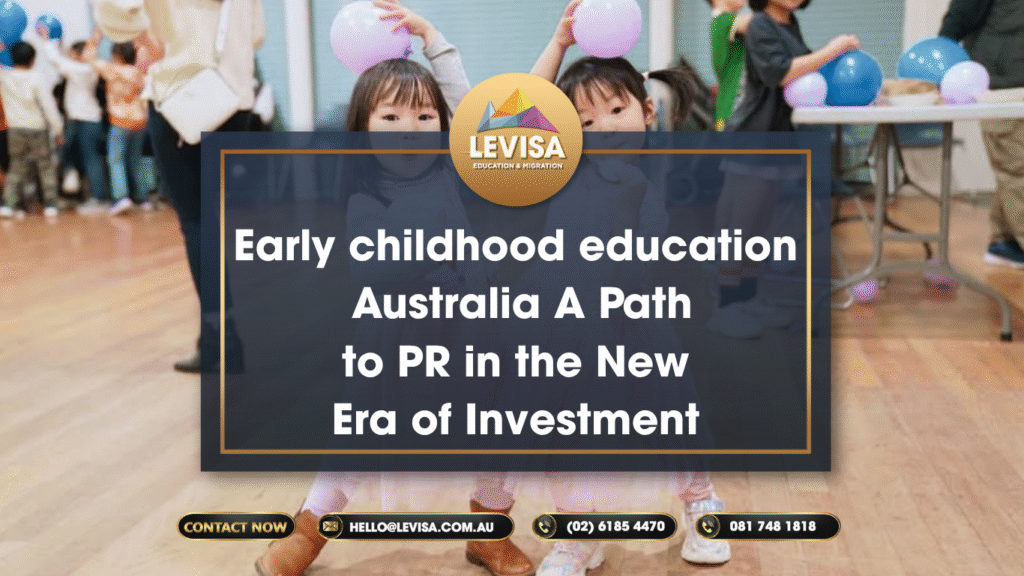Early Childhood Education (ECE) in Australia is currently one of the hottest sectors, offering a clear and stable pathway to Permanent Residency (PR) for international students. Driven by a severe shortage of Early Childhood Teachers (over 25,000 professionals needed) and significant investment from the Australian Government, ECE is not just a meaningful career but a priority PR route.
This comprehensive article provides detailed updates on ECE entry requirements, crucial changes to the 2024/2025 skills assessment process, and the latest visa opportunities to help you turn your Australian migration dream into reality.

Why is Now the Golden Time to Study Early Childhood Education in Australia?
2024 and the coming years mark a major turning point for the Early Childhood Education (ECE) sector in Australia. With critical skills shortages and historical government investment packages, ECE stands as one of the most stable pathways to Permanent Residency (PR) in Australia.
Massive Demand: Over 300,000 children under the age of 5 require early education, resulting in a shortage of more than 25,000 skilled workers in the sector.
National Strategy: ECE is classified as a medium and long-term strategic occupation, making it a high priority for skilled migration.
Historic Investment: The Australian Government has committed huge funding, such as the Building Early Education Fund (approximately $1 billion AUD), solidifying the sector’s stability and growth for the next decade.
Early Childhood Education Study Requirements & Entry Criteria for International Students
Meeting the High Standards for Early Childhood Teaching
| Requirement Type | Detailed Criteria |
Key Consideration
|
| Academic | Completion of High School (for Diploma/Bachelor) or a relevant Bachelor/Master’s degree (for Master of Teaching ECE). |
GPA requirements vary significantly by university and program.
|
| English Language | Typically IELTS Academic 7.0 (with no band score below 6.5 or 7.0, depending on the institution). |
Crucial Update: ACECQA (the new skills assessment body) may accept the completion of at least one year of full-time tertiary study delivered in English in a recognised country (including Australia) to meet the language requirement, offering more flexibility than the traditional high IELTS scores.
|
| Course Length | Usually a 4-year Bachelor’s degree or a 2-year Master of Teaching (for those with prior relevant degrees). |
The program must be officially accredited by ACECQA.
|
| Supervised Placement | Mandatory completion of approximately 80 to 100 days of supervised professional practice. |
Update: Must include a minimum of 10 days of practice with children aged birth to under 3 years old to meet the new skills assessment standard.
|





